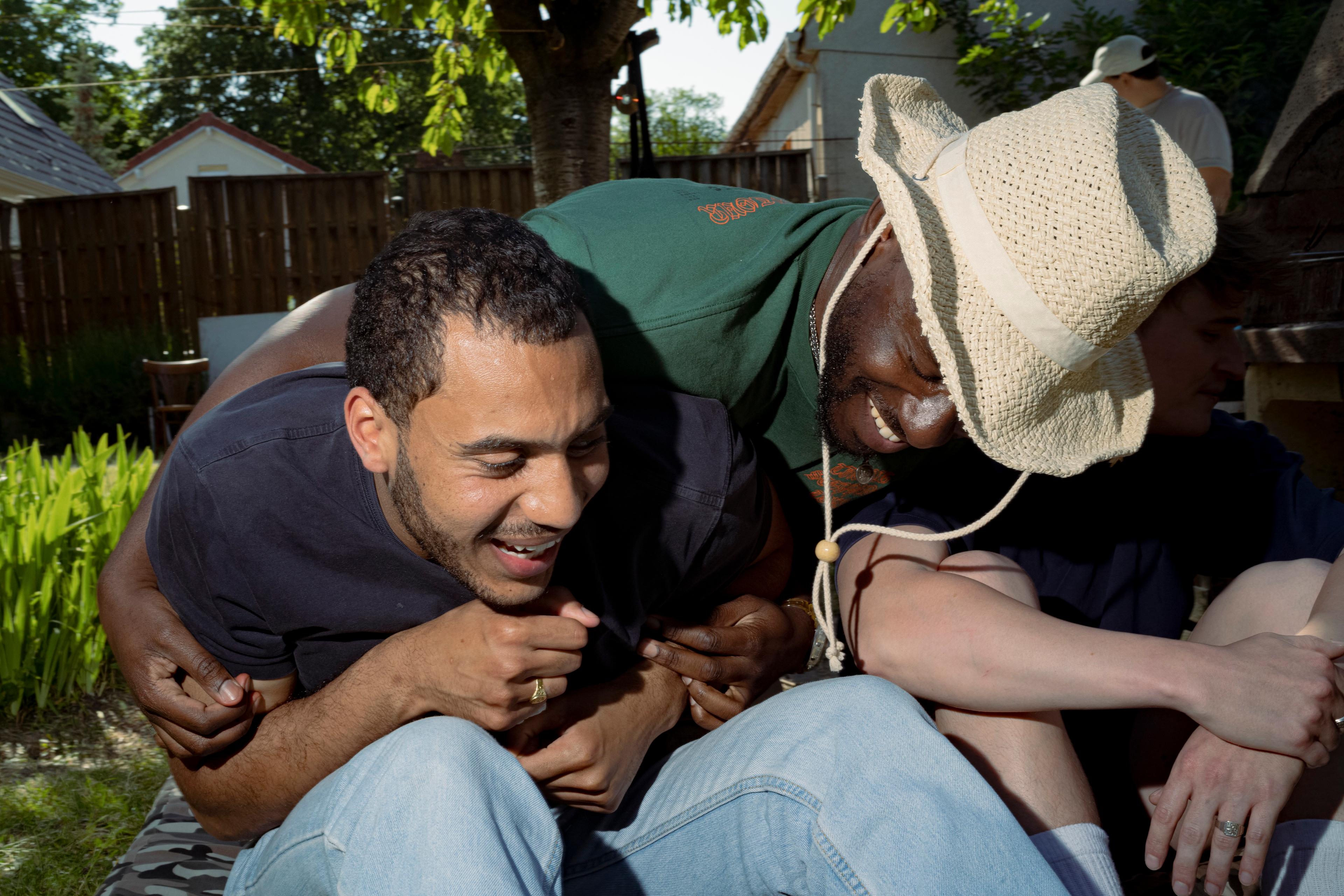Psychopaths and narcissists aside, many of us are committed to the idea that, from a moral perspective, we ought to give consideration to others’ interests when we act, and not just give consideration to our own interests. But if we want to live well and be morally good, just how far should we take this approach? Should we give even more consideration to others’ interests than to our own – that is, should we strive to be highly altruistic?
Based on a wave of recent research findings, you might think this is definitely a good idea. After all, when you act altruistically, these studies suggest it’s not only beneficial to those you are helping, but it also rebounds and benefits you psychologically and physically too, improving your health and increasing your lifespan. This line of work has captured the popular imagination, prompting headlines such as ‘The Physiological Power Of Altruism’ and ‘The Helper’s High’.
However, recent research is showing that the story is more complicated than that. The main issue is that not all highly altruistic orientations are created equal. There are different motivations driving people’s altruism, and these different reasons vary in their consequences.
Consider a key driver of some people’s altruism – a trait known in psychology as ‘unmitigated communion’. Imagine someone who has a low opinion of themselves, and also worries that others see them that way too. They disregard their own needs in order to devote themselves to their partner or children or neighbours and their interests. They become obsessively involved in these other peoples’ concerns and centre their whole life around them to the point that if these others are removed from the picture – their partner passes on, or the children or neighbours move away – they have no idea where to begin in making a life of their own. Perhaps you know or have known someone like this in your own life.
Unmitigated communion involves the tendency to sacrifice one’s own interests to promote others’ interests, so, in this way, it is highly altruistic. Yet, crucially, this self-sacrifice arises because the person entangles their own happiness with others’ happiness to an extreme. They act to benefit others because they feel that others can’t get on without them, they worry excessively about others, and they feel that they themselves can’t be happy unless others are happy.
Research confirms that people who score highly in unmitigated communion also tend to score higher in trait neuroticism (emotional instability) and they experience more stress. My colleagues and I have also found that they score low on what’s known as ‘self-differentiation’. People low in self-differentiation have a difficult time balancing intimacy and autonomy in close relationships, and are highly emotionally reactive to others’ experiences, finding it difficult to remain calm when others’ emotions are heightened. Low self-differentiation, like unmitigated communion itself, is known to be related to depression, anxiety and stress.
This research on unmitigated communion is an important corrective to the simplistic idea that altruism comes in one flavour, and that it is always good for you. Of course, this raises the question of what a healthier variety of altruistic disposition might look like. We know from research that people tend to be happier when they give a benefit to someone else than when they give it to themselves. But what’s important for our purposes is the reason why they experience more happiness. My colleagues and I believe there’s another key driver of altruistic behaviour, which has to do with feeling happier when benefitting others because of how this fosters positive relationships with others – a trait that we call ‘others-centredness’.
For an idea of what this trait looks like in practice, consider a story from 2018 when the world was captivated by news of a soccer team who had been stuck in a cave in Thailand. The team’s 25-year-old coach, Pi Ekk, insisted on helping every member of the team be rescued before allowing himself to be rescued. One of the players later remarked that this was not surprising, because coach Ekk always thought of others before himself, consistently being the last to have a drink of water at team practice. Perhaps Ekk was exhibiting others-centredness, valuing his own rescue and that of team members equally, but preferring to help them be rescued first because of the additional value involved in showing care for them.
People who are others-centred think it is just as valuable for themselves to be happy as it is for anyone else to be happy. They tend to agree with statements on questionnaires such as: ‘My wellbeing matters no more and no less than anyone else’s.’ But they also value having positive relationships with others. This is reflected when they agree with statements such as: ‘It is valuable when people cooperate with each other.’ The combination of these factors then leads them to prioritise benefitting others rather than themselves, so that they agree with statements such as: ‘I prefer to secure a benefit for someone else than to secure it for myself.’
The highly altruistic nature of others-centredness is clear in our research findings, as you would expect. People who score more highly on our measure of others-centredness are more forgiving, kind, fair and honest. They are also more empathetic, more altruistic and more agreeable. They volunteer more and are more civically engaged – and, in a test we gave them that involved sharing money, they tended to give more to their partner.
Crucially, it’s not just that people high in others-centredness benefit others – their own lives seem to go better for themselves, too, in a way that is more consistent with those popular headlines about altruism, but is different from what we would expect with unmitigated communion. We’ve found that people who are others-centred are more satisfied with their lives, they experience more meaning in their lives than their counterparts, and they’re better able to cope with stress. They also tend to score lower on negative variables such as neuroticism and low self-differentiation. In short, others-centredness appears to keep the positive associations of putting others first while avoiding the drawbacks.
If others-centredness really is a sweet spot for altruism, and you’re not there already, you might wonder what you can do to move yourself closer? While I’m optimistic that this sort of movement is possible in light of research on volitional personality change, I can’t offer a very firm answer here, as this is a topic we are just beginning to actively explore. Yet there are two natural suggestions that seem like decent possibilities to me.
The first involves reflecting on your own behaviour and motives. When you are inclined to benefit others, are you doing it for reasons more reflective of unmitigated communion, or for reasons more reflective of others-centredness? If you are acting from a place of worry, getting overly involved, or feeling you can’t be happy without taking control for the other person, you might want to reconsider the behaviour. Your motives might not always be obvious to you, of course, but sometimes you might be able to spot and correct for problematic motives when they arise.
Secondly, it could be useful to plan ahead and put yourself into situations where you’ve decided beforehand that you will benefit others rather than yourself. Perhaps you could make a plan that, the next time there is a plate of sweets in the break room at the office, you’ll give others first dibs. Or perhaps you can plan to give way to your partner the next time there is a conflict in your shared calendar.
In these ways, you’ll experience the satisfaction that comes from helping others, and learn to value such an approach to life. Bear in mind that, in several of the studies that have found that people are happier benefitting others than benefitting themselves, participants were simply assigned to the condition of benefitting others. It might not have been what they would have chosen for themselves in the moment, yet they still experienced greater satisfaction.
Giving yourself the chance to experience this satisfaction is important, because it will help correct for a tendency people have to underestimate how much they and others will appreciate the small connections forged together. If you can correct for this tendency and learn to value the relationships you facilitate by acting out of concern for others’ interests, this could help you move closer to others-centredness – to altruism’s sweet spot.








